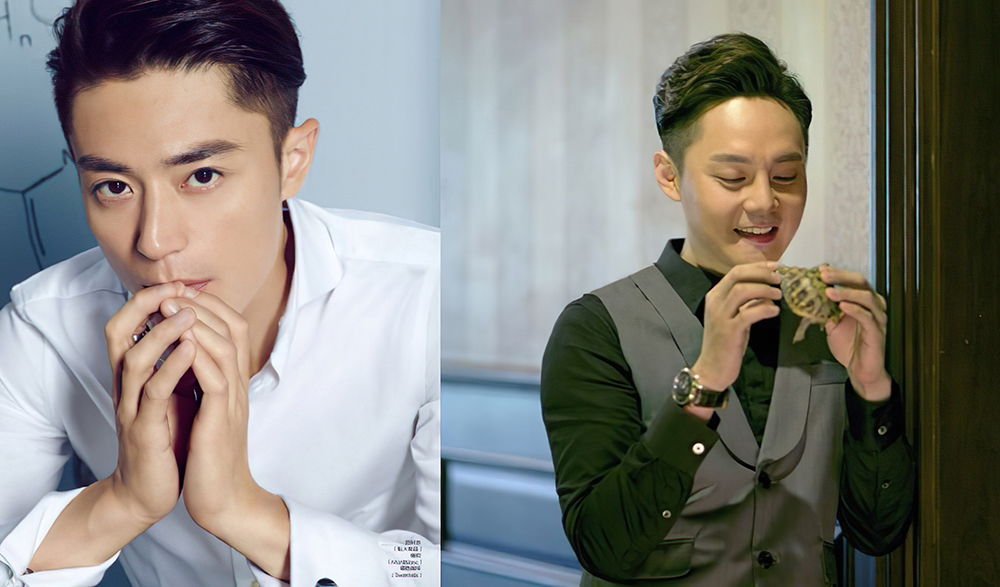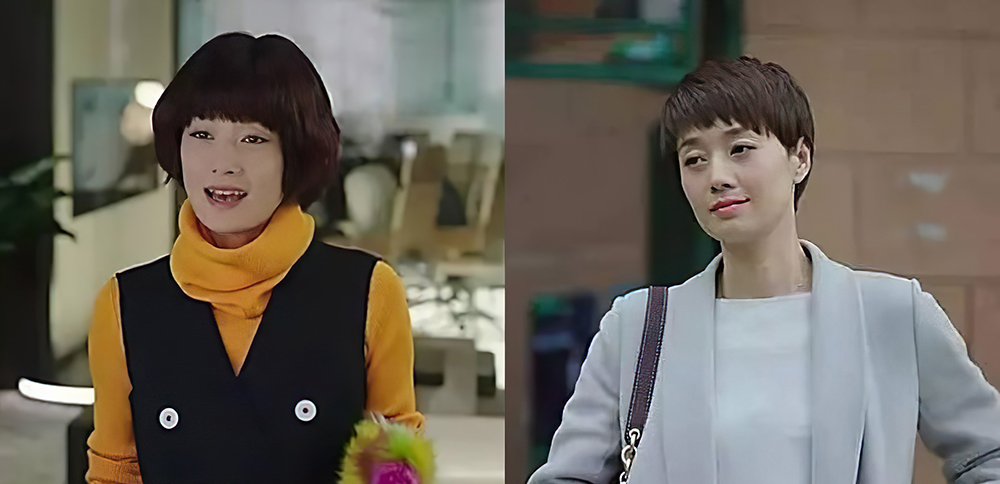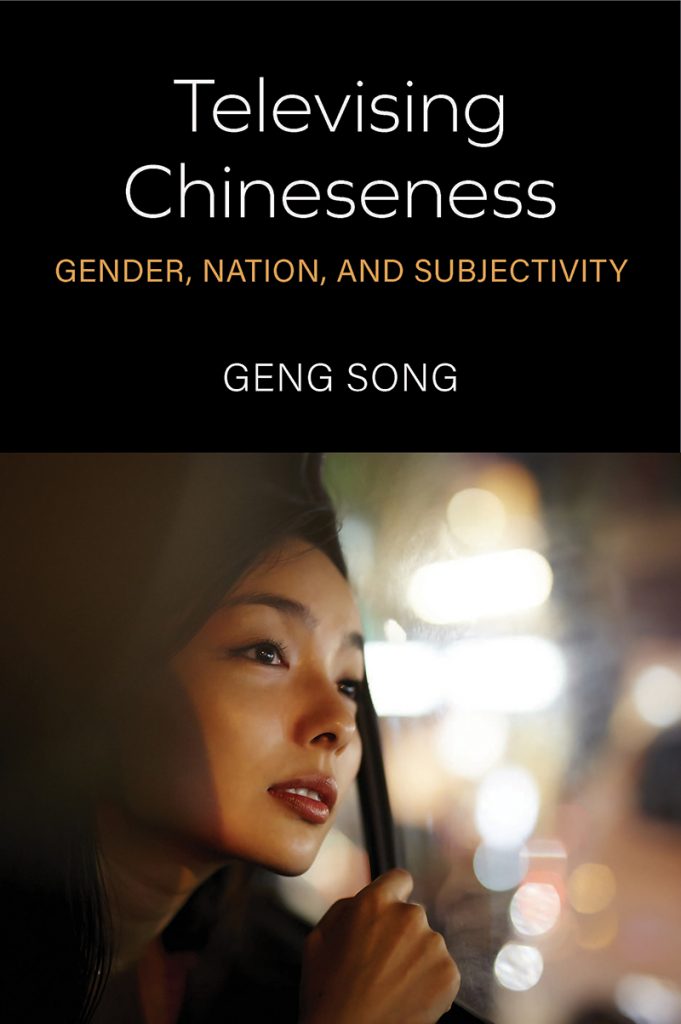May 2022 | Volume 23 No. 2
Identity Dramas
Portrayals of gender in popular culture both construct and mirror a society’s ideals of women and men, in which case Chinese dramas are sending decidedly mixed signals, said Dr Song Geng of the School of Chinese, who explores the phenomenon in his new book Televising Chineseness: Gender, Nation and Subjectivity.
“There is an interesting paradox in Chinese popular culture today. On the one hand, there is a growing diversity of gendered images, like the feminine man, and some inexplicit queer elements. These images are non-conforming, non-mainstream types of gendered images. But on the other hand, there is a revival of patriarchy, that is, the ideology of male dominance and worship of a fatherly image. It’s obvious that the heterosexual norm is still regarded as the dominant ideology,” he said.
Drawing on textual analyses of popular dramas and focus group and online feedback from a broad range of viewers, he shows how the two manage to sit side by side because, in the end, the patriarchy is not disturbed.
Heavy-handed censorship is wielded over ‘moralistic’ aspects such as sex scenes and explicit LGBTQ [lesbian, gay, bisexual, transgender and queer] representation, while storylines do not, in the end, subvert the gender order. However, audience response and preferences suggest that viewers are favouring a more diverse range of characters.

‘Little fresh meat’ images: Bo Jinyan (left) and Fu Ziyu (right) in Love Me, If You Dare (2015).
‘Feminine man’ and ‘supreme heroine’
The ‘feminine man’, for instance, is very popular with young women. These characters, called ‘little fresh meat’ in China, are young, handsome, inexperienced in love and have an appearance and behaviour that is considered more effeminate. They show obvious influence of the male aesthetic in Japanese and Korean popular culture.
“They represent the ideal boyfriend for the female characters,” he said, and are popular among young women. Even young men follow their model – Dr Song has noticed some of his students imitating the dress and hairstyles of these characters.
There is a backlash online against the feminine man, who is said to make the country look weak compared to Western ‘he-men’ such as football players. By comparison, resistance to effeminate men in the West is underpinned by homophobia.
“A common quote among those who criticise it is ‘if young men are effeminate, China is effeminate’. They will also say, ‘if there’s a war in future, who can defend the country?’,” he said. “But the pro-effeminacy commentators also frame their arguments in nationalist terms. They argue that the diversity of gender images is a signifier of modernity and shows that China is now more open, modern and cosmopolitan.
“Both camps relate gender to the virility of the country, because gender is about how you properly nurture and reproduce the next generation.”
When it comes to women, the concerns are less about national security and more about explicit patriarchy. Dramas have emerged focussing on the ‘supreme heroine’ who is seemingly independent and empowered by economic growth to engage in self-improvement and self-development. Yet her success ultimately requires intervention by a powerful man.

Contrasting images of Luo Zijun before and after her divorce, reflecting her transformation from a shallow housewife (left) into an astute career woman (right) in The First Half of My Life (2017).
Cinderella revamp
For example, the show The First Half of My Life is about a woman married to a successful executive who enjoys life as a housewife and conspicuous consumer. He cheats on her, the marriage ends, and she loses everything, propelling her to become a successful career woman – made possible in part by another man. “The paradox is that she succeeds because of the help of her new boyfriend, who is even richer than her ex-husband,” he said.
Along the same lines is the female character who is modest in appearance and achievement, but attracts the attentions of a powerful, wealthy man, dubbed by TV fans the ‘bossy CEO’, who falls madly in love with her and forcefully tells her she must accept his love. The show Boss and Me is an example of this. The woman tells her boss she is not a good match for him, then works hard to become a successful businesswoman in her own right. Once that is done, she has proven herself worthy of her husband, so she gives up her career and marries her boss.
“I would summarise the ideology of these dramas as women who behave themselves to deserve the love of powerful men. It’s a revamp of the Cinderella story, it’s not new, but it has been packaged around seemingly new gender relations,” he said.
The audience reactions to these shows are divided. Some educated women are highly critical, but women of other backgrounds, particularly low-income women in their late 20s and 30s who do not have children, mostly enjoy the shows. “They say this is a fantasy for them, an escape from reality,” he said, a response that should make programmers happy.
“Generally, television is regarded as a feminine genre of entertainment,” Dr Song said. It has been much less studied compared to film and this, combined with the huge popularity of watching shows on digital platforms, inspired him to write his book.

Televising Chineseness:
Gender, Nation and Subjectivity
Author: Song Geng
Publisher: University of Michigan Press
Year of Publication: 2022
Both camps relate gender to the virility of the country, because gender is about how you properly nurture and reproduce the next generation.

DR SONG GENG

